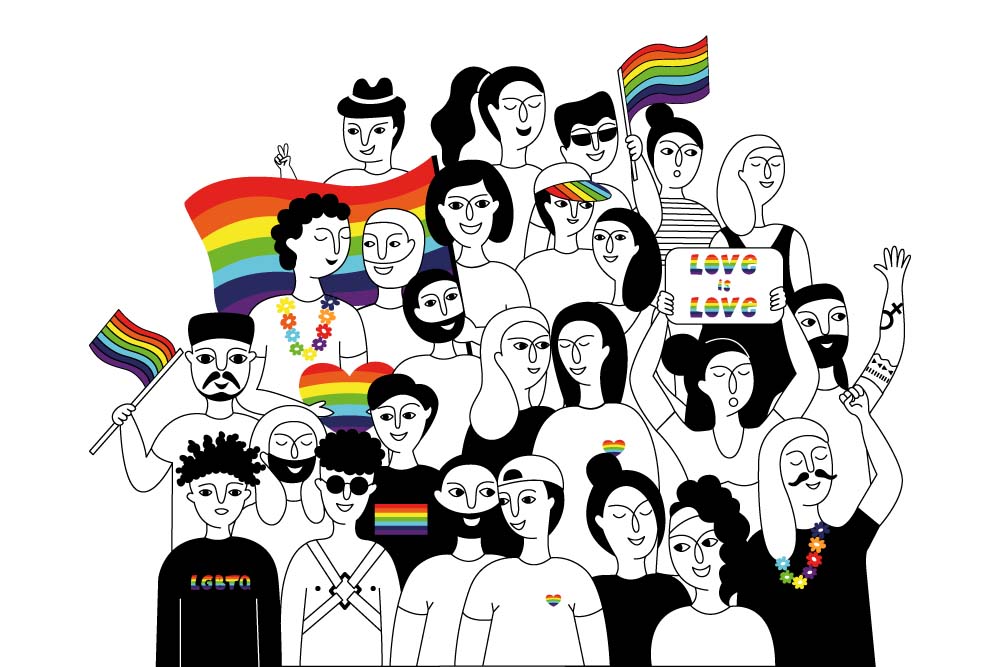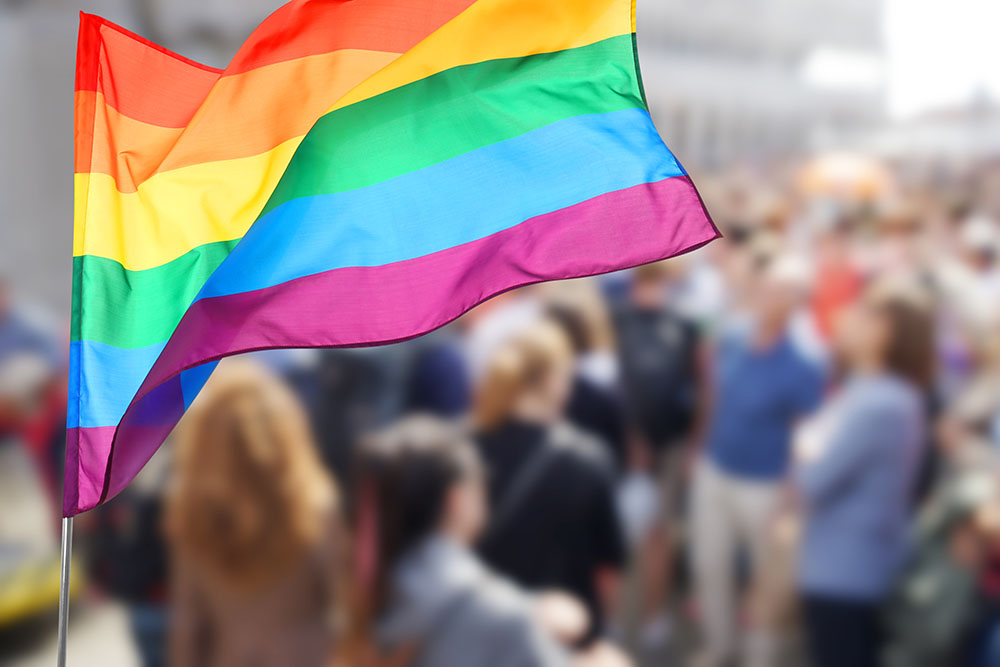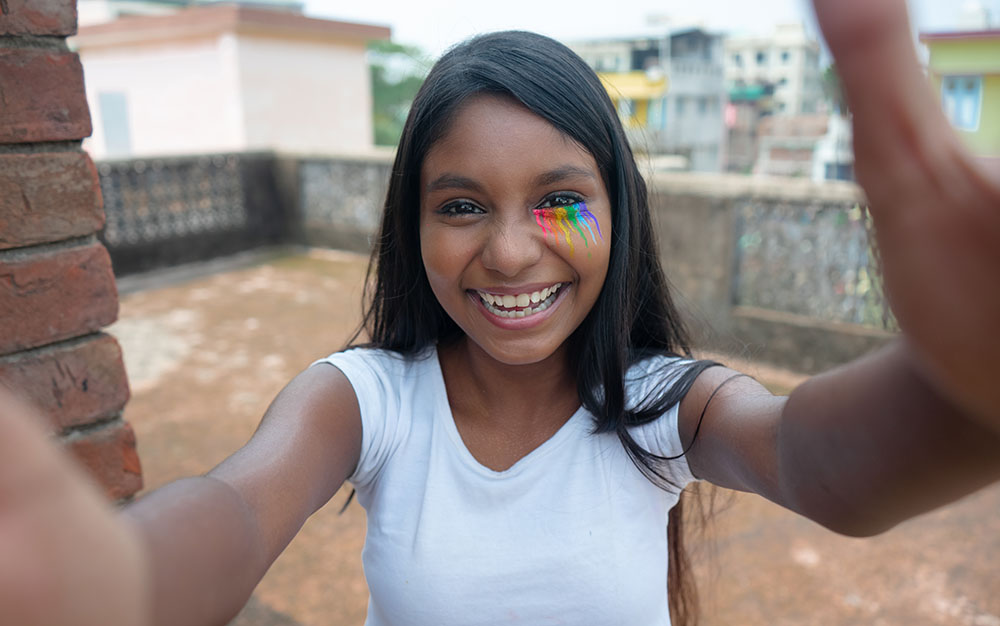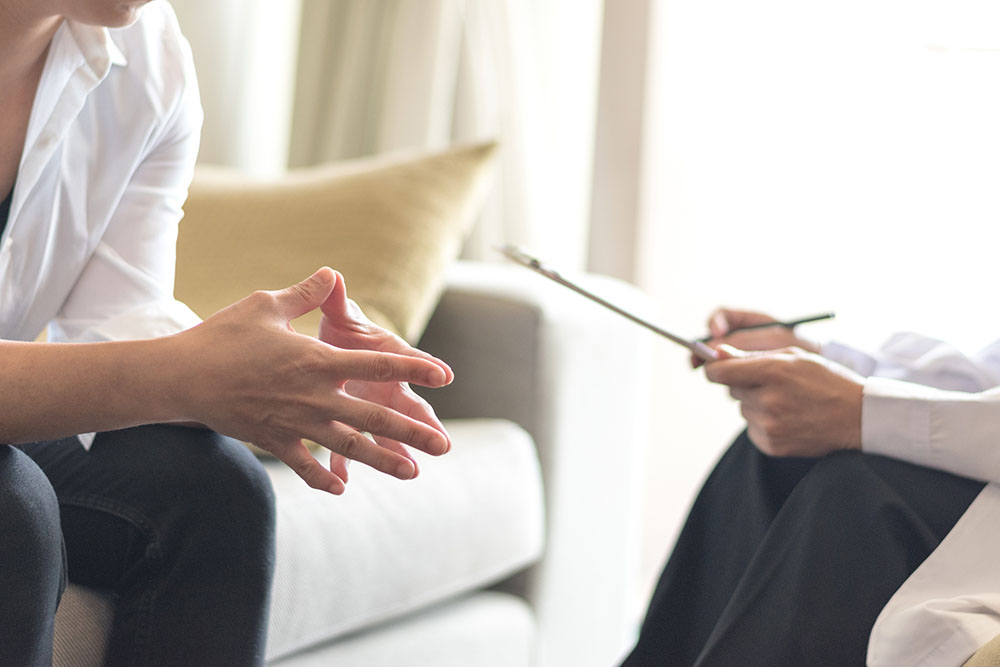At a time when mental well-being is a topic of extreme importance the world over, there are still some backlogs to consider, especially when it comes to the LGBTQIA+ community. Far too often, we come across news articles and members of the community taking to social media to talk about their experiences riddled with discrimination, which further has a huge impact on their mental health.

Every individual has a sexual orientation and sense of self—and these aren’t necessarily based on genders assigned at birth. In fact, the idea that there is a whole spectrum of gender and sexual identities is now universally accepted, even if orthodox societies aren’t always as inclusive as you’d hope them to be. The LGBTQIA+ community includes people within this larger spectrum, giving persons who identify with various gender and sexual identities a sense of belonging and togetherness. Given the wide range of experiences they go through, queer affirmative therapy is understood by many in the LGBTQIA+ community with the mental health support they need. Here’s everything you need to know.
Real People, Real Experiences
For Sumit Sidana*, there was always a sense of doubt while he was growing up. Was his inclination to be around boys more than just mere banter? He had a mixed group of friends, but it was when he turned 15, he realised that he might be gay. “For the next couple of months, I was still trying to come to terms with my sexual identity, and the best way I thought would be to completely isolate myself and figure this out on my own, lest I was made fun of by my peers,” he says. It took him a long time to confide in one of his friends, and an even longer time to venture out to eventually start dating others. However, while he may have accepted his identity, his family remains unaware. “On most days, it’s exhausting keeping up this façade for them, but I am unsure of their reaction,” he reasons. He’s started with therapy with a renowned therapist in New Delhi, and they’re currently working towards unlearning his behaviours, and being more comfortable with who he is. “The idea is to be comfortable in being who you are, so you can live with yourself irrespective of what others say,” he explains.
“It takes more guts to stand out and assert one's unique identity. Members in the LGBTQIA+ community have struggled with this issue their entire lives. A fight like this might put them under a lot of stress. Long-term struggles to prosper in the face of social stigma can be exhausting,” says Kalita Krishna* (they/them), who identifies as bisexual. They come from a family with “extremely modern” views, so it was easier for them to come out about their sexual orientation to their family. However, that wasn’t the case with their friend who had to endure a lot of backlash – both mental and physical from his family members. In fact, “My identity is hidden from my workplace, as their ideologies are pretty strict, more so when it comes to gender and sexual identities. So a lot of time, my pronouns are not used correctly, and I have no other option but accept it,” she expounds.

LGBTQIA+ people endure higher mental health concerns than heterosexuals, according to studies conducted around the world. According to the researchers, the stigma, prejudice, and discrimination people suffer as a result of their differences contribute to their mental health problems. LGBTQIA+ people are at a higher risk of suffering from mental illnesses such as substance use disorders, mood disorders, and suicidal ideation, according to community studies. According to a 2016 study by the Centers for Disease Control and Prevention (CDC), LGBTQIA+ community members are approximately three times as likely as heterosexual community members to have suicidal thoughts.
“Ever since I was in school, I was bullied and called a lot of names due to my ‘effeminate nature’. On bringing this to the concerned authorities’ notice, there was still no support, and the bullying continued for a long time, before I could confess to my parents, and changed schools,” explains Nayan Budhiraja*. However, in his case, his parents, although initially apprehensive, have come forward and become his biggest support system. “At first, I sought therapy to understand my own behaviours, triggers, which in turn help me affirm my identity. Now, my parents also go for therapy to understand how best they can support me and uplift others going through something similar around them.”
Now, we may have seen positive outcomes from these three examples, but the current scenario is far from being better, especially in India. Same-sex marriages are still frowned upon in mainstream society. For many in the LGBTQIA+ community, the institution of family or intimacy, which the heterosexual community takes for granted, is a luxury. They are at danger of having an identity crisis, emotions of rejection, and pessimism due to a lack of affection, acknowledgment, and approval.
To make matters worse, mental health issues in the country are considered taboo. Seeking help for a mental health problem is frowned upon by your friends and family members. Consider the predicament of the LQBTQIA+ community in this context. Furthermore, there is a scarcity of LGBTQIA+-related psychiatric literature in India, and those within the medical community also lack the sensitisation needed to support patients from the community.
However, the situation seems to be changing with the emergence of Queer Affirmative Therapy. Here’s what it entails.

Understanding Queer Affirmative Therapy
According to Shubhangi Agrawal, clinical psychologist, queer affirmative counselling practitioner (MHI), and founder at Authentic Psychologist, “Queer Affirmative Therapy is a therapeutic practice which involves a lens of inclusivity, acceptance, advocacy and understanding of the unique life stressors that are prevalent in the LGBTQIA+ community. It entails a deep understanding of intersectionality and how each and every one of us is affected by it.”
She continues, “There does not need to be a specific reason for one to seek therapy. It can be for getting a deeper understanding of self, or can be targeted at specific problems, some of which may include unexplained aches and pains, mood problems (low, irritable, fluctuating frequently), appetite and sleep issues; or dealing with adverse life events. For individuals who want a nuanced understanding of their mental health which includes cultural, gender, sexuality factors, a queer affirmative therapist will be the right person to go to.”
Queer-Friendly VS Queer Affirmative
Often the terms ‘queer-friendly’ and queer affirmative are inter-changed. However, there is a difference in these terminologies. Aggarwal explains, “The difference in the terminology indicates the difference between acceptance and affirmation. Queer Affirmative Therapy is about advocacy, about affirming and standing with every identity and believing that someone’s identity cannot be an ‘opinion’. It is also about understanding what it is to be an ally, constantly learning and unlearning, and most importantly it is about providing the mic to lived experiences.”
Why Is Queer Affirmative Therapy Important?
Homosexuality was categorised as a mental disease throughout the 1960s and early 1970s. In 1973, the American Psychiatric Association removed homosexuality as a mental disease from the second edition of the Diagnostic and Statistical Manual of Mental Disorders (DSM). The World Health Organisation took nearly two decades to recognise homosexuality as normal. However, society's attitude toward community members endures.
This is where Queer Affirmative Therapy becomes crucial. “It is important because it is about human rights, it is about understanding our role as professionals in shaping the opinions of community at large. It about providing an informed and safe space for every person that enters our clinic, specially the marginalised communities,” elucidates Aggarwal.

How To Know If Your Therapist Is Queer Affirmative
Agrawal says that the best way to understand if your therapist is queer affirmative is to simply ask them. “Understand the parameters of their practice, the process they will be undertaking,” she says. A therapist, who is serious about providing queer affirmative practice will answer questions coming from clients or potential clients.
Other ways to gauge if a therapist is queer affirmative to see if they match these guidelines:
• Therapists who are certified to practice queer affirmative therapy
• Queer people who become therapists, as representation within therapists is crucial
• Get in touch with the local LGBTQIA+ community or people who identify as queer, and ask them for a recommendation
• Find LGBTQIA+ support groups on Instagram and social media platforms
*names have been changed on request